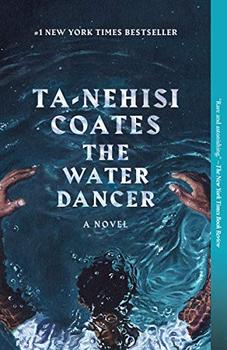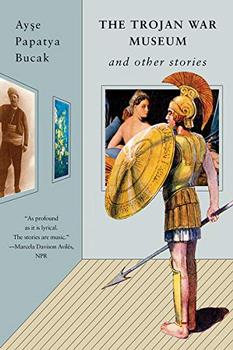Summary | Excerpt | Reading Guide | Reviews | Beyond the book | Read-Alikes | Genres & Themes | Author Bio

In American Histories, a collection of 21 short stories, John Edgar Wideman draws America's present and its divisive racial history as the direct consequence of a political and economic system that depends on man's inhumanity to fellow human beings. Wideman refers to this system as "empire," a word fraught with connotations of imperialism and slavery. "We wait and wait for the moment to arrive," he writes, "Wait for the time to celebrate. Time to love. We understand empire a chimera, a bad idea. Same bad idea over and over again. Empire dead. Long live empire." The collection is an impassioned condemnation of an empire that thrives on inequality and injustice. This condemnation is evident in Wideman's rhetoric, but also in his nuanced and empathetic explorations of his characters.
The 21 stories alternate between contemporary and historical settings. Two historical pieces, "JB & FD" and "Nat Turner Confesses" (see Beyond the Book) relate incidents of violence during the Civil War. In the former, abolitionist John Brown writes to Frederick Douglass with accounts of the murders of slavery supporters at Pottawatomie Creek in Kansas in 1856 and about the 1859 raid on Harpers Ferry in Virginia. In the latter story, Nat Turner stands at the gallows from which he is to hang and narrates the bloody details of the 1831 slave rebellion he led. In "Collage," the author imagines a conversation between collage artist Romare Bearden and painter Jean-Michel Basquiat.
In the expertly crafted "Writing Teacher," an African American professor recalls giving advice to a white student writing a story featuring a black protagonist. The narrator astutely defines the task inherent in creating credible fiction, "Who believes they can experience what another person experiences. Wouldn't a person be many people if such an exchange possible." But the best authors, a group to which Wideman certainly belongs, can competently step outside of themselves and directly into the heart and mind of a protagonist. This is what makes Wideman's work so compelling.
"Williamsburg Bridge," is an extended meditation on life, love, death, and history by a narrator clinging to the edifice, intending to jump. The contemporary story is a moving, poetic, but also darkly comical piece full of absurdity, as the narrator repeatedly draws attention to the fact that he is wearing only his boxer shorts and posits that the Houston airport is the epicenter of the afterlife.
Wideman's depictions of violence and frank commentary on race are occasionally discomfiting, and sensitive readers may find it upsetting. But the truth he is attempting to convey is harsh — racism breeds monstrous acts and perpetuates terror. Wideman's fictional Nat Turner explains eloquently, "I decided to kill white people when the voice I hear sometimes...said you don't need them...Do not need the heaven and hell in their churches. Not the hell on earth they make of this Virginia."
In a story titled "Empire," Wideman presents a fable about Capitalist ills and mass complacency, where a group of people called "Gratefuls" is kept docile and compliant by their overlords, the "Givers." The Gratefuls are "fascinated by whatever they see or punch into devices inexhaustibly patient, inexhaustibly responsive with infinite reams of pictures and games." The story ends with one Grateful trying to catch the eye of another Grateful to exchange a look of dissatisfaction. This is not a subtle allegory. Though the Grateful's small moment of protest is quashed, the message here—and in many of the other stories—is that we must rebel against oppression by any means necessary. While this makes for dark, occasionally difficult reading, Wideman excels at providing poignant portraits of people engaging in struggles that are insightful and thought-provoking.
![]() This review was originally published in The BookBrowse Review in April 2018, and has been updated for the
April 2019 edition.
Click here to go to this issue.
This review was originally published in The BookBrowse Review in April 2018, and has been updated for the
April 2019 edition.
Click here to go to this issue.

If you liked American Histories, try these:

by Ta-Nehisi Coates
Published 2020
In his boldly imagined first novel, Ta-Nehisi Coates, the National Book Award–winning author of Between the World and Me, brings home the most intimate evil of enslavement: the cleaving and separation of families.

by Ayse Papatya Bucak
Published 2020
A debut story collection of spectacular imaginative range and lyricism from a Pushcart Prize–winning author.
Your guide toexceptional books
BookBrowse seeks out and recommends the best in contemporary fiction and nonfiction—books that not only engage and entertain but also deepen our understanding of ourselves and the world around us.